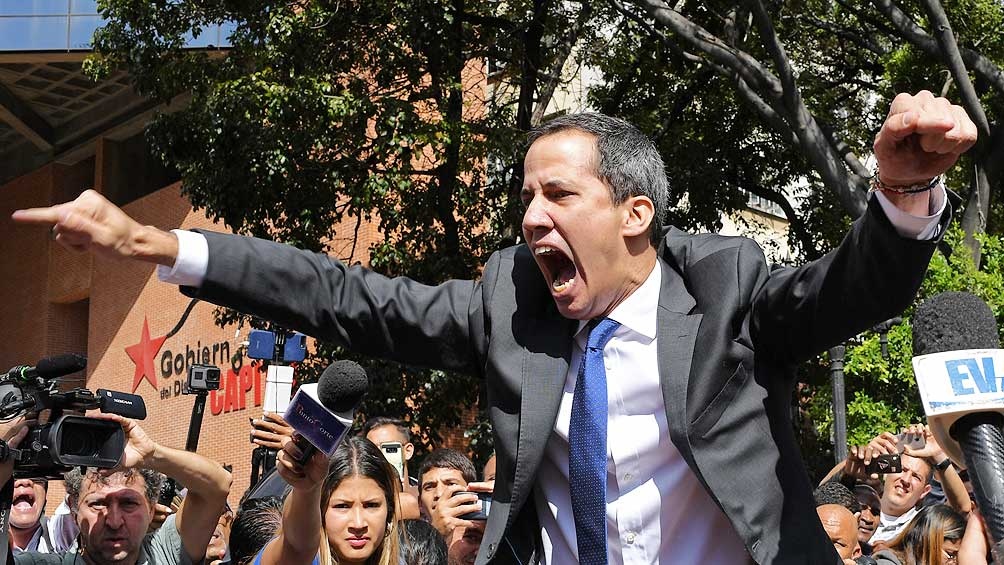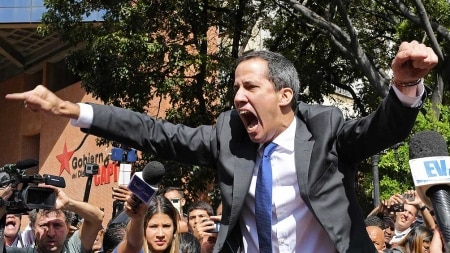 Juan Guaidó. Photo: file.
Juan Guaidó. Photo: file.
A majority of former Venezuelan opposition deputies approved on Friday the reform of the statute for the transition that contemplates the elimination of the interim government led by Juan Guaidó since 2019, which had the support of some 50 countries led by the United States, after four years of failed offensive. to try to depose the socialist president Nicolás Maduro.
“Total votes: 72 votes in favor, 29 votes against, eight votes saved,” said José Antonio Figueredo, who serves as secretary of the National Assembly (unicameral parliament).which works in parallel to the legislative body, with an official majority, elected in 2021 and which is recognized by all State institutions.
The former deputies voted during an extraordinary session that was held virtually, the AFP and Sputnik agencies reported.
The session was scheduled for Wednesday and was later postponed to January 3, 2023but due to claims from the leaders, it was finally carried out this Friday.
On December 22, the leaders had approved in the first discussion the elimination of the interim government, with 72 votes in favor, 23 against and nine abstentions, after a proposal presented by the political parties Primero Justicia, Acción Democrática, Un Nuevo Tiempo and Movimiento. for Venezuela.
At that time, the leaders of the political organizations indicated that the interim government should disappear after having weakened and not meeting its objectives.
However, indicated that they will maintain the ad hoc meetings of Petróleos de Venezuela SA (PDVSA) Holding, in the company Citgo, based in the United States, that of the Central Bank of Venezuela (BCV) and the National Assembly to legislate only on issues related to protection of State assets blocked abroad.
In addition, they plan to create an executive commission to represent the defense of assets abroad.
Guaidó proclaimed himself “president in charge” in a public square on January 5, 2019, with the support of the United States and fifty countries, alleging that Maduro’s re-election in 2018 was a fraud.
That international support, however, was diluted. Washington maintains its formal recognition of the “interim government” but sent delegates to meet Maduro amid the oil crisis unleashed by sanctions against Russia for invading Ukraine, while governments of Latin American countries such as Brazil, Colombia and Argentina swung to the left. .
The opposition plans primaries in 2023 with a view to the next presidential elections, scheduled for 2024, for which Guaidó sounds like one of the candidates.


